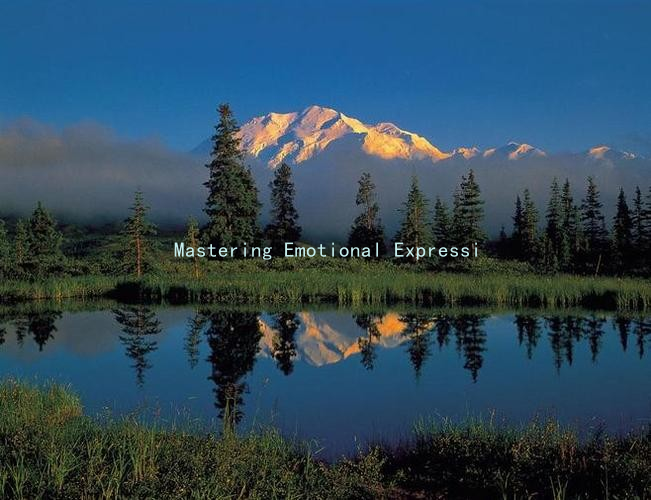Mastering Emotional Expression: The Key to Successful Dating
Mastering Emotional Expression: The Key to Successful Dating
In the world of dating, emotional expression often serves as the bridge that connects two individuals. The ability to communicate feelings effectively can make a significant difference in building and maintaining healthy relationships. This article delves into the essential techniques and phrases that can help you convey your emotions genuinely and enhance your dating experiences.
Understanding Emotional Expression
Emotional expression involves conveying your feelings openly and honestly. It isn’t just about what you say; its also about how you say it. Non-verbal cues, such as body language, eye contact, and facial expressions, play a crucial role in how your emotional messages are received. Hence, mastering this skill can create deeper connections and foster a sense of trust between partners.
The Importance of Vulnerability
One of the most powerful tools in emotional expression is vulnerability. Sharing your thoughts and feelings, even when they might seem daunting, can invite your partner to reciprocate. For instance, saying, “I feel a bit nervous about our date because I really like you,” can open the doors to more profound discussions and emotional intimacy. Vulnerability shows authenticity, and it allows both partners to create a safe space for honest communication.
Effective Phrases for Emotional Connection
1. Expressing Interest: “I really enjoy spending time with you; you bring out the best in me.” This communicates appreciation and positivity, making your partner feel valued.
2. Sharing Insecurities: “I sometimes worry about my ability to be the partner you deserve.” Voicing insecurities can prompt reassurance and deepen the bond by showing that you trust your partner with your vulnerabilities.
3. Affirming Feelings: “I’ve started developing strong feelings for you, and I wanted to share that with you.” Being clear about your feelings can foster honesty and help set the relationships direction.
4. Acknowledging Differences: “I understand that we might see things differently, and that’s okay. I value our conversations about it.” Valuing differing opinions strengthens relationships, as it shows respect for each other’s perspectives.

Active Listening: A Key Component
Mastering emotional expression goes hand in hand with active listening. When your partner shares their feelings, validate their experience by saying things like, “I understand how you feel, and it’s completely valid.” This shows empathy and encourages further dialogue, creating a two-way emotional street.
Non-Verbal Communication
Remember, emotional expression isnt solely verbal. Body language can significantly influence how your words are perceived. Maintain eye contact to convey sincerity and use open gestures to reflect your willingness to communicate. A warm smile or a gentle touch can also convey affection and reassurance.
Setting the Right Environment
The context in which you express your emotions matters as well. Choose a comfortable setting where both of you can talk freely without distractions. Whether it’s a cozy café, a peaceful park, or a quiet evening at home, creating a conducive environment is essential for open emotional expression.
Navigating Difficult Conversations
Sometimes, expressing difficult emotions is necessary. Phrasing matters here as well. Instead of saying, “You always do this,” try, “I sometimes feel hurt when this happens.” This approach focuses on your feelings rather than placing blame, which can lead to more constructive discussions.
Conclusion
Success in dating hinges on mastering emotional expression. Whether you’re just starting to date or are in a long-term relationship, being able to articulate your feelings—both positive and negative—can foster deeper connections, empathy, and trust. By employing effective phrases, embracing vulnerability, and practicing active listening, you’ll create a more profound emotional bond with your partner. Remember, emotional expression is not just about conveying feelings; it’s about building a foundation for a lasting relationship.





